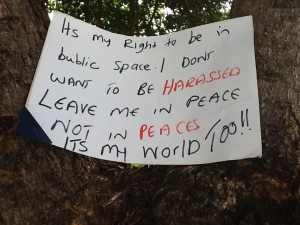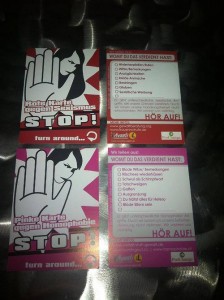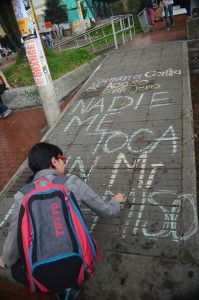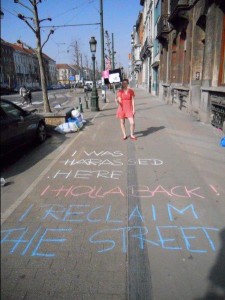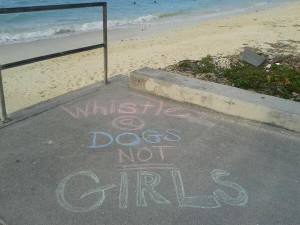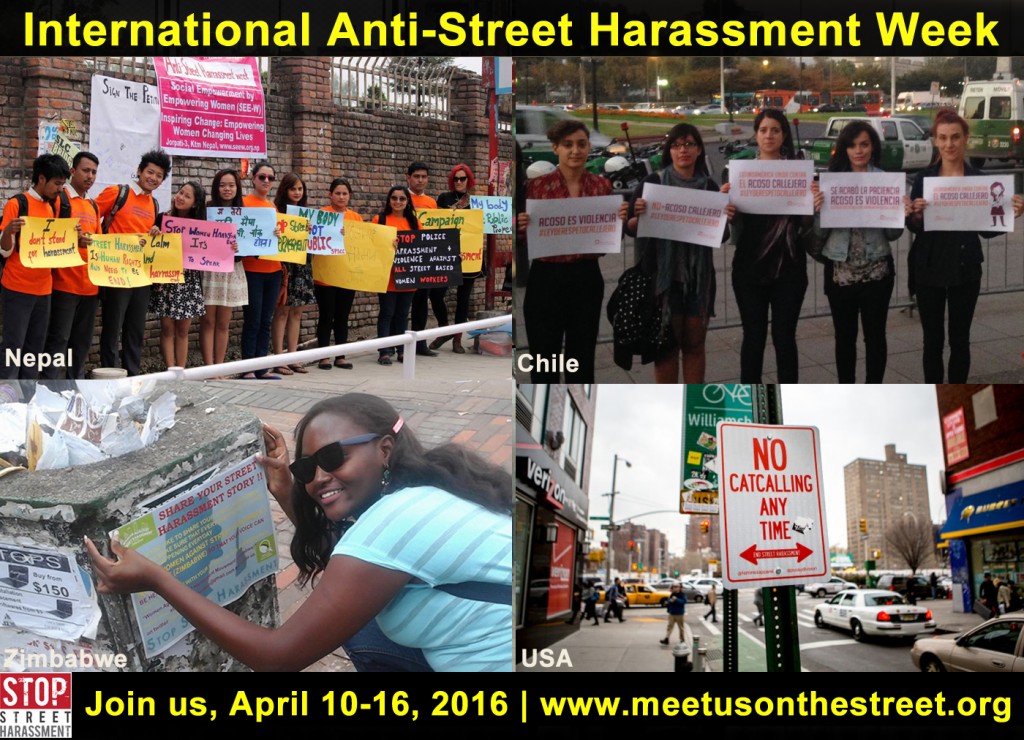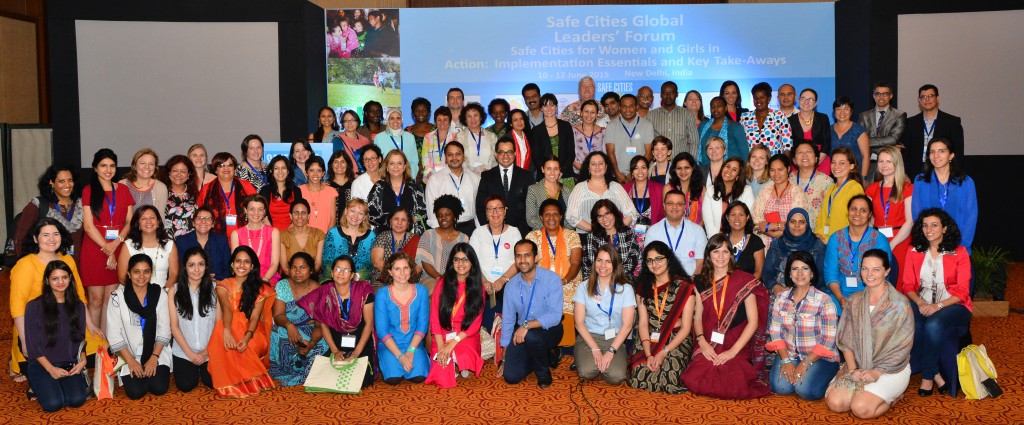Nyasha Joyce Mukuwane, Johannesburg, South Africa, SSH Blog Correspondent
 With the onset of the 16 Days of Activism Against Gender-Based Violence on Nov. 25, some activists are using visual creativity to bring home the facts of rape culture in South Africa.
With the onset of the 16 Days of Activism Against Gender-Based Violence on Nov. 25, some activists are using visual creativity to bring home the facts of rape culture in South Africa.
Rape is a widespread problem. According to a 2013 Medical Research Council (MRC) survey, up to 3,600 people could be raped in the country every day. The Institute for Security Studies (ISS) claims that only one in 13 rape cases are reported to police. Fewer than 30 cases go through for prosecution and trial of which only 10 result in a conviction.
Jenny Nijenhuis and Nondumiso Lwazi Msimanga are collaborating in a creative installation of artivism in order to create awareness around rape in South Africa. They are collecting 3,600 pieces of underwear to hang a washing line approximately 1.2 kilometres long displaying the underwear during the 16 Days of Activism.
The preferred route for hanging the installation is from Arts On Main on Berea Road, right into Fox Street and left into Albrecht Street to SoMa´s entrance. This route from Arts On Main to SoMa covers 400m in distance. The goal is to run the washing line down both sides of each of the streets involved, thereby covering a distance of 800m. The balance of the line and installation will continue to the gallery entrance and up into the upstairs gallery area.
Speaking about the installation, Nijenhuis says,
“We wish to curate/choreograph an activation/disruption of the space in and around the gallery for 10 of the 16 Days of Activism whilst the installation is up. The space will thus be used as a point of reflection through works dealing in this subject matter. Nondumiso Msimanga will be working on a performance art piece titled ‘On the Line.’ The performance will display a female at the different developmental stages and rites of passage of becoming a woman, in a cyclical narrative of rituals. We have also posted an open call inviting contributions towards the project from the broadest spectrum of disciplines including (but not limited to) the visual arts, performances (maximum length 15 minutes), interventions, music, dance, talks, poetry, video (maximum length 15 minutes) and theatre.
The point being for artists to show how art, when used for the purpose of socio-political activism, has the power and ability to shift the status quo. Activism aims to promote, impede, or direct social, political, economic, or environmental change – to make societal improvements and to correct social injustice. Through this call, we’re inviting artists to truly observe, reflect and comment on what the rape crisis in SA looks like. We hope to bring this message to people on the street, and not just to the audiences that frequent galleries.”
Installation Dates: 25 November to 4 December 2016
Location: SoMa Art + Space – Streets of the Maboneng Precinct in Johannesburg
In order to successfully produce the installation the artists need to collect 3600 panties. Since the project is not for profit, a donations Facebook page has been set up. The panties drive asks anyone prepared to support the project to donate their old and unwanted panties or underpants. These are being collected at various collection points across the country. Donate. | More information on this project.
Nyasha is the public awareness coordinator at the Nisaa Institute for Women’s Development in Johannesburg, South Africa, where the main goal is counselling and sheltering survivors of domestic abuse. She has edited two books by survivors that are available to download for free from the website www.nisaa.org.za.


